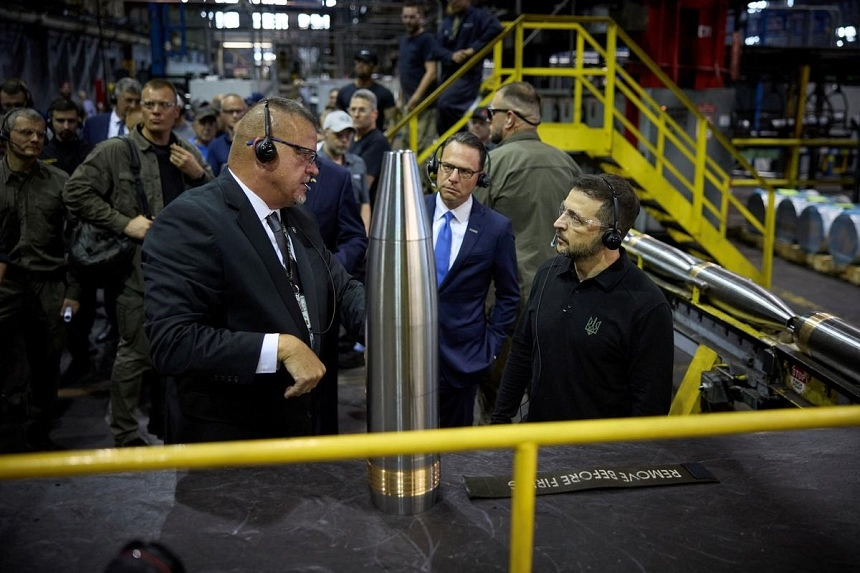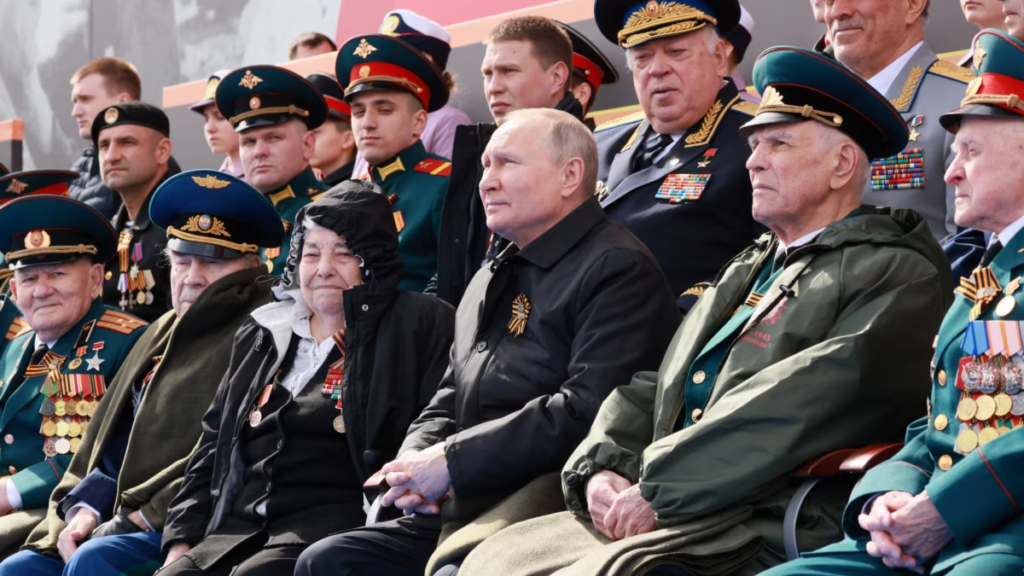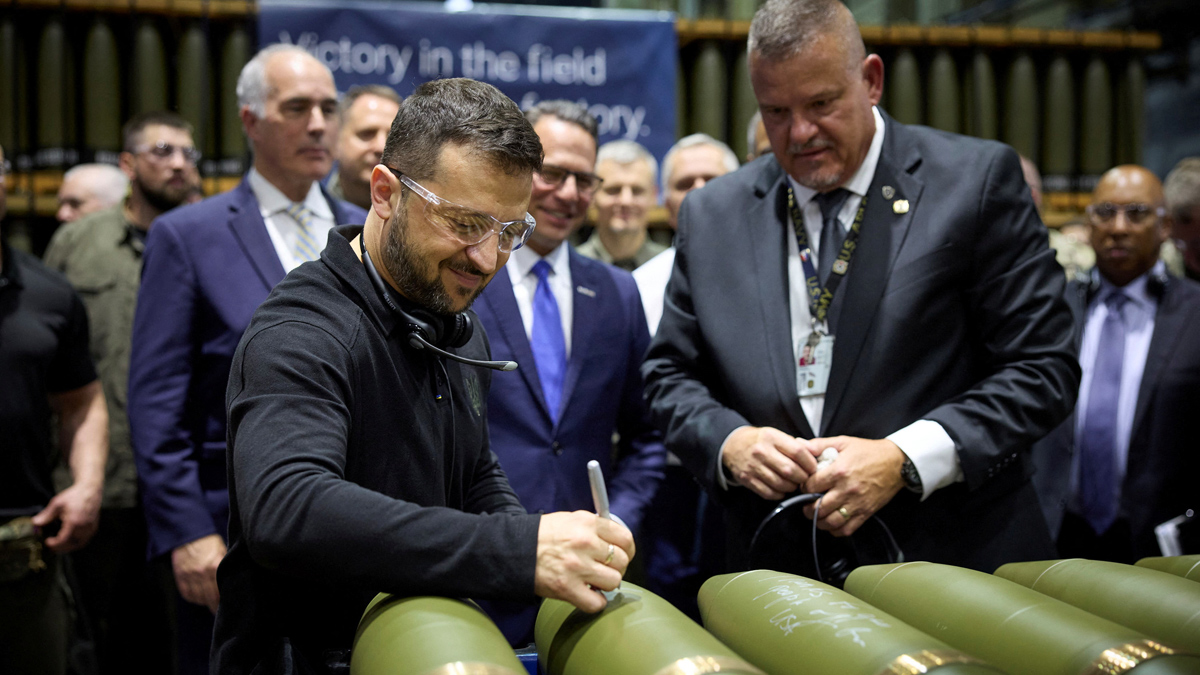The Ukraine victory plan has become a central topic in international discussions as President Volodymyr Zelensky strives to gather global support for ending the ongoing conflict with Russia.
As the war continues to shape Ukraine’s future, Zelensky’s proposal has attracted significant attention from the global community, especially its allies in the West.
The Ukraine victory plan has been a focal point in Zelensky’s diplomatic efforts. Recently, the Ukrainian president traveled to the United States, where he presented the plan to key American leaders, including President Joe Biden.
The timing of the presentation is crucial, as Zelensky aims to influence U.S. policy towards Ukraine ahead of the upcoming presidential elections, regardless of who takes office. Zelensky also intends to share his plan with other major powers, including the United Nations, where he will address the General Assembly.
Russia’s Position on the Ukraine Victory Plan
The Kremlin has shown reluctance to engage with Zelensky’s victory plan, at least until more concrete details emerge through official channels. Russian officials have expressed skepticism about media reports surrounding the plan, insisting they will only study the proposal if it is presented formally.
Read : Putin Would Eat You for Lunch: Kamala Harris to Donald Trump in Presidential Debate
Kremlin spokesperson Dmitry Peskov emphasized the importance of scrutinizing official sources of information, particularly given the widespread misinformation and contradictory accounts circulating in the media.
Despite the cautious tone from Moscow, there are indications that Russia may be open to discussing a potential resolution to the conflict under the framework of the Ukraine victory plan.
Read : NATO Accuses China of Aiding Russia’s War on Ukraine
Ukrainian officials have suggested that Russia could eventually be invited to a summit aimed at brokering a lasting peace agreement, though this remains a distant prospect. For now, Russia’s primary stance is to wait and see if the Ukraine victory plan is formally introduced before making any judgments.
Zelensky’s Diplomatic Push and the Ukraine Victory Plan
Zelensky’s recent trip to the United States was aimed at securing long-term international support for Ukraine, with the Ukraine victory plan being central to his discussions. During his visit, Zelensky emphasized the need for strategic partnerships that can offer Ukraine the military and financial aid necessary to secure a lasting victory over Russia.

His presentation to President Joe Biden, as well as to potential future U.S. leaders such as Kamala Harris and Donald Trump, demonstrates Zelensky’s commitment to ensuring that Ukraine’s cause remains at the forefront of U.S. foreign policy.
The Ukraine victory plan seeks to establish clear, actionable steps that Ukraine’s allies can take to weaken Russia’s hold on occupied territories and force a diplomatic resolution.
Zelensky has stressed that this plan is not just about military victories but also about rebuilding Ukraine and creating a secure future for its people. Key elements of the plan include increased sanctions on Russia, enhanced military aid to Ukraine, and a commitment from the international community to help rebuild the country’s war-torn infrastructure.
During his address at the United Nations General Assembly, Zelensky reiterated that there can be no “freezing” of the conflict or temporary ceasefires that allow Russia to regroup and continue its aggression at a later stage.
Instead, the Ukraine victory plan envisions a decisive end to the war, with Russia being held accountable for its actions and a lasting peace agreement that secures Ukraine’s territorial integrity.
Long-term Implications of the Ukraine Victory Plan
The Ukraine victory plan is not just a short-term strategy; it lays the groundwork for Ukraine’s future in the post-war period. Military experts and political analysts suggest that Zelensky is aiming for long-term assurances of aid that extend beyond the current U.S. administration, ensuring that Ukraine receives support into 2025 and beyond.
This long-term vision is crucial for Ukraine, given the potential for prolonged conflict and the massive reconstruction efforts that will be required once the war finally comes to an end.
Oleksandr Kovalenko, a Ukrainian military analyst, noted that the plan’s success will largely depend on how effectively Zelensky can secure international commitments in the coming months.

He argues that the Ukraine victory plan could be a pivotal moment in Ukraine’s struggle, both militarily and politically, particularly if it leads to a broader international coalition against Russia.
Meanwhile, U.S. National Security Adviser Jake Sullivan confirmed that President Biden is eager to discuss Zelensky’s comprehensive strategy for success in the war. Sullivan’s remarks underscore the importance the U.S. places on Ukraine’s victory and its role in shaping the broader geopolitical landscape in Europe.
Russia’s Response and Future Prospects for the Ukraine Victory Plan
While Russia has not officially responded to the Ukraine victory plan, the Kremlin’s cautious approach suggests that it is closely monitoring developments. Peskov’s comments about waiting for official information indicate that Moscow remains skeptical of any plan that could undermine its influence in the region.
However, there are hints that Russia might eventually be forced to engage with Zelensky’s proposal, particularly if it gains significant international backing.
The possibility of Russia being invited to a peace summit later this year is a key aspect of the Ukraine victory plan. Although this may seem far-fetched given the current hostilities, diplomatic pressure could eventually force Russia to the negotiating table.
Ukrainian officials have made it clear that any peace talks will require Russia to make significant concessions, including withdrawing from occupied territories and paying reparations for the damage caused by its invasion.
Zelensky has been adamant that any solution must be based on justice and accountability. He has ruled out the possibility of a frozen conflict, which would only serve to delay future aggression from Russia. Instead, the Ukraine victory plan calls for a comprehensive settlement that ensures Ukraine’s security and sovereignty, while also holding Russia accountable for its actions.
The Role of International Allies in Supporting the Ukraine Victory Plan
One of the most important components of the Ukraine victory plan is the role of Ukraine’s international allies, particularly the United States and its NATO partners. Zelensky has made it clear that Ukraine cannot achieve victory without substantial external support, both in terms of military aid and financial assistance.
The plan outlines a series of steps that Ukraine’s allies can take to ensure a swift and decisive victory, including increasing sanctions on Russia and providing Ukraine with advanced weaponry.
In addition to military support, the Ukraine victory plan also calls for a coordinated international effort to rebuild Ukraine once the war is over. This will require significant financial investment from countries around the world, as well as a long-term commitment to helping Ukraine recover from the devastation of the war.
Zelensky has emphasized that this is not just about winning the war, but about creating a stable and prosperous future for Ukraine. The Ukraine victory plan represents Zelensky’s vision for a decisive end to the war with Russia, one that ensures Ukraine’s sovereignty and holds Russia accountable for its actions.
While Russia has been cautious in its response, the plan’s success will ultimately depend on how effectively Zelensky can rally international support and secure long-term commitments from Ukraine’s allies. As the conflict continues to unfold, the world will be watching closely to see how the Ukraine victory plan shapes the future of the region.

